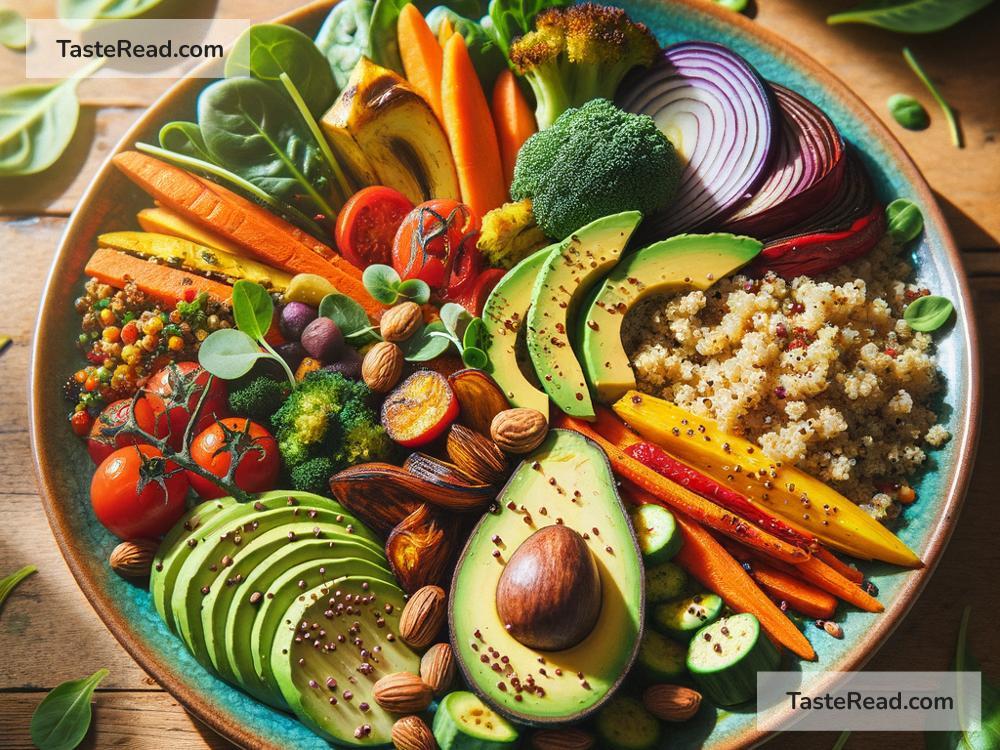The Science Behind Vegetarian Diets: Why They’re Good for You and the Planet
Vegetarian diets have become increasingly popular in recent years, and for good reason. More and more people are choosing to eat plant-based foods—not just for ethical or environmental reasons, but for their health. But what does science actually say about vegetarian diets? Why is this way of eating good for us? In this blog post, we’ll explore the science behind vegetarian diets in simple terms, so everyone can understand.
What Is a Vegetarian Diet?
A vegetarian diet focuses on plants, including fruits, vegetables, grains, nuts, and seeds. Vegetarians avoid eating meat, fish, and poultry. Some vegetarians also give up animal-derived products like gelatin, but many still consume dairy products and eggs. There are different types of vegetarians, such as:
- Lacto-vegetarians: Include dairy but avoid meat, fish, and eggs.
- Ovo-vegetarians: Include eggs but avoid meat, fish, and dairy.
- Lacto-ovo vegetarians: Include both eggs and dairy but avoid meat and fish.
- Vegans: Avoid all animal products, including dairy and eggs.
Each person’s vegetarian diet may look slightly different, depending on their preferences and health goals.
What Does Science Say About Vegetarian Diets?
A growing body of research shows that vegetarian diets can benefit both individual health and the environment. Let’s take a closer look.
1. Health Benefits of Vegetarian Diets
Plant-based diets are rich in nutrients that are essential for a healthy body. When people eat mostly plants, they consume lots of vitamins, minerals, fiber, and antioxidants. These foods can reduce the risk of many diseases. Here are some examples:
- Heart Health: Vegetarians tend to have lower levels of bad cholesterol (LDL) and blood pressure. Studies show that eating plant-based foods regularly can significantly lower the risk of heart disease, since plants are naturally low in unhealthy fats and high in fiber.
- Weight Management: Vegetarian diets can help people maintain a healthy weight. Compared to meat-heavy diets, plant-based diets usually contain fewer calories and more fiber, which helps people feel full longer and avoid overeating.
- Diabetes: Research shows that vegetarians are less likely to develop type 2 diabetes. This is because plant-based diets improve blood sugar control and reduce inflammation.
- Cancer Prevention: Some studies suggest that vegetarian diets may lower the risk of certain types of cancer, such as colon and breast cancer. This is likely due to the antioxidants and phytochemicals found in fruits and vegetables.
- Better Digestion: Fiber-rich foods like fruits, vegetables, and legumes promote good digestion and prevent problems like constipation.
By focusing on whole, unprocessed foods, vegetarians can enjoy better overall health and energy levels.
2. Nutrients in a Vegetarian Diet
While plant-based diets are healthy, it’s important to eat a variety of foods to avoid nutrient deficiencies. Some nutrients are naturally more abundant in animal products, but vegetarians can still get them from plants or supplements. Key nutrients to pay attention to include:
- Protein: Found in beans, lentils, tofu, nuts, seeds, and whole grains.
- Iron: Found in spinach, beans, fortified cereals, and pumpkin seeds. Pairing iron-rich foods with vitamin C (found in oranges or tomatoes) can help the body absorb iron.
- Vitamin B12: Essential for energy production and brain function, B12 is mainly found in animal products. Vegetarians may need B12-fortified foods or supplements.
- Omega-3 Fatty Acids: Important for brain and heart health. Plant-based sources include flaxseeds, chia seeds, walnuts, and algae-based supplements.
- Calcium: Found in fortified plant milks, leafy greens, almonds, and tofu.
- Zinc: Found in nuts, seeds, whole grains, and legumes.
Eating a diverse range of fruits, vegetables, and fortified foods ensures you get all the nutrients your body needs.
3. Environmental Benefits
Science also highlights the environmental advantages of plant-based diets. Producing plant-based foods uses fewer resources—like water and land—compared to producing meat. For example, growing crops requires less water than raising livestock, and plants grow much faster than animals. Here are some ways vegetarian diets help the planet:
- Lower Greenhouse Gas Emissions: Animal farming is responsible for a large portion of greenhouse gases like methane and carbon dioxide. Eating plant-based reduces this impact.
- Conserving Water: Producing meat uses significantly more water than crops. For example, it takes around 1,800 gallons of water to produce a single pound of beef!
- Preserving Land: Growing plants requires less land than farming animals, allowing more space for forests and wildlife.
Choosing more plant-based meals is one way to care for the Earth while improving your health.
Conclusion
Science tells us that vegetarian diets are a win-win for both personal health and the environment. By eating more fruits, vegetables, legumes, grains, and nuts, people can reduce their risk of chronic diseases, maintain a healthy weight, and protect our planet.
If you’re thinking about trying a vegetarian diet, you don’t have to switch overnight. Even making small changes—like swapping meat for beans once a week—can make a big difference. Start experimenting with delicious plant-based recipes, and remember to eat a variety of foods to stay healthy.
By understanding the science behind vegetarian diets, you can make informed choices that benefit both your body and the world around you.


